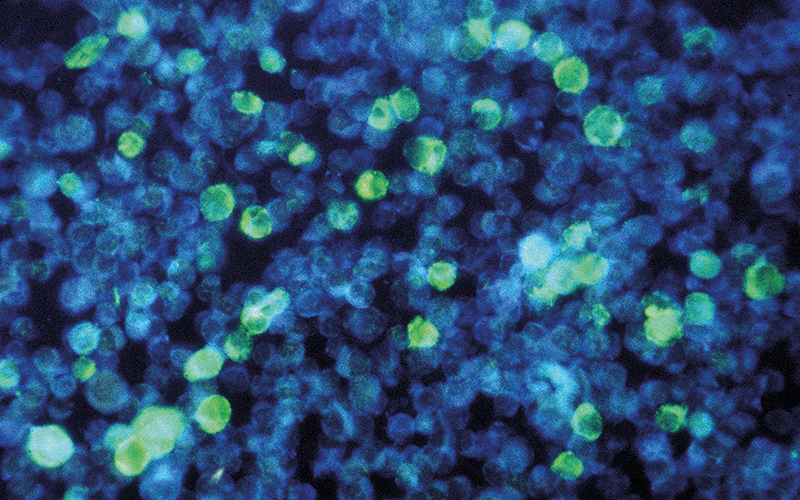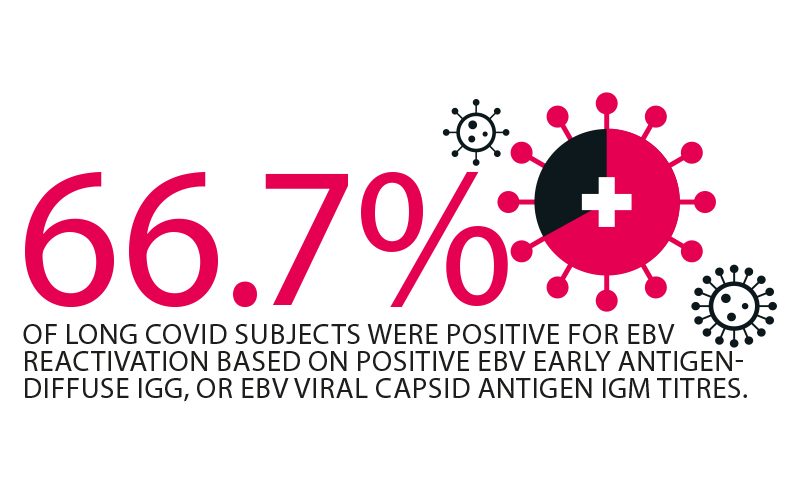Epstein–Barr virus (EBV) reactivation resulting from the inflammatory response to coronavirus infection may be the cause of previously unexplained long COVID, it is claimed.

The symptoms – such as fatigue, brain fog, and rashes – occur in approximately 30% of patients after initial recovery.
The first evidence linking EBV reactivation to long COVID, as well as an analysis of long COVID prevalence, is outlined in a new long COVID study.
Lead study author Jeffrey E Gold said: “We ran EBV antibody tests on recovered COVID-19 patients, comparing EBV reactivation rates of those with long COVID symptoms to those without long COVID symptoms. The majority of those with long COVID symptoms were positive for EBV reactivation, yet only 10% of controls indicated reactivation.”
The researchers began by surveying 185 randomly selected patients recovered from COVID-19 and found that 30.3% had long-term symptoms consistent with long COVID after initial recovery from SARS-CoV-2 infection. This included several patients with initially asymptomatic COVID-19 who later went on to develop long COVID symptoms.
In a subset of 68 COVID-19 patients randomly selected from those surveyed, 66.7% of long COVID subjects versus 10% of controls were positive for EBV reactivation based on positive EBV early antigen-diffuse IgG, or EBV viral capsid antigen IgM titres.

Image Credit | Science Photo Library




